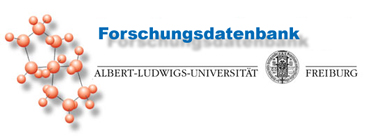| [Zurück zum Forschungsbericht] |
 |

SFB KIDGEM, Teilprojekt Z2 "Spatio-temporal analysis of confocal microscopic kidney data"
Projektbeschreibung:The complexity of recorded in vivo data often exceeds the comprehension of the observer, and requires extensive post-processing to obtain insight in the underlying mechanisms. This project will develop image analysis tools that are essential for the CRC to translate complex microscopy data into quantitative conclusions. Especially for volumetric and/or time-lapse data, it is challenging to derive statistical conclusive information from multi-dimensional recordings. The project will focus on two common image-analysis problems that are most relevant for this CRC. The first aim develops hierarchical model learning and registration algorithms for setting up a spatio-temporal high-resolution gene atlas of the kidney derived from large sets of confocal in situ recordings at multiple stages of normal and disease-associated abnormal development. The atlas will be searchable and allow virtual spatio-temporal co-localization analysis with the highest possible precision. Due to the large variations in shape and appearance, we will develop new registration and machine learning algorithms that will establish correspondences at different abstraction levels to propagate the labeling information between all recorded samples. The output will be an average spatio-temporal high-level template connected to multiple more detailed templates that reflect the different possible anatomical realizations. As a second innovation, the project will focus on tracking cells, cellular components and cell assemblies in general volumetric image sequences. The emphasis will be on data, where the tracked structures cannot be easily separated. We will develop algorithms for a simultaneous dense tracking and de-noising that can decipher volumetric movies, recorded at the highest possible frame rate. The output will be a data set with high temporal and spatial resolution with full correspondences between all frames, i.e. image analysis tasks applied to a single frame can be easily propagated to the entire sequence. Taken together, this Z project aims to develop new computer-science approaches that can be adapted to specific experimental settings, and narrow a large set of specialized solutions to few principled frameworks. Such general methodology will be developed on data of the CRC projects, but will be generally applicable to biological and medical problems.Projektlaufzeit:
Projektbeginn: 2016Projektleitung:
Projektende: 2019
Prof. Thomas Brox, Dr. Thorsten FalkKooperationspartner
Albert-Ludwigs-Universität Freiburg
Mustererkennung und Bildverarbeitung
Prof. Dr. Thomas Brox
Georges-Köhler-Allee, Gebäude 052
79110 Freiburg i. Br.
Telefon: +49-761-203-8260
Fax: +49-761-203-8262
http://lmb.informatik.uni-freiburg.de/
apl. Prof Dr. Olaf Ronneberger (Google DeepMind)Finanzierung:
- DFG, DFG
Aktueller Forschungsbericht